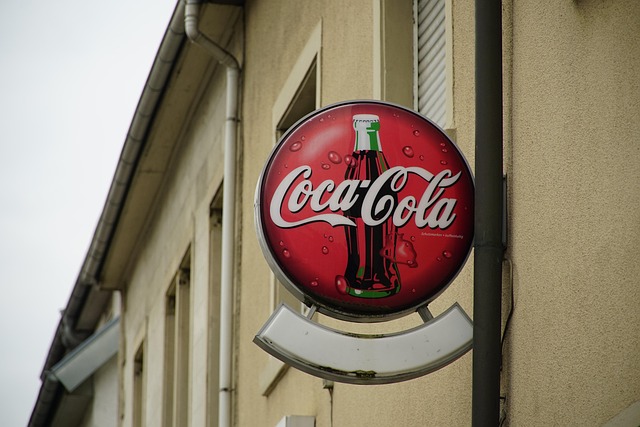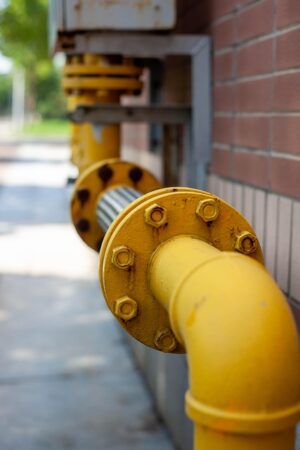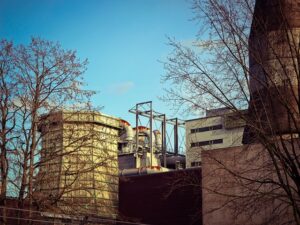Hydronic industrial unit heaters are advanced systems using hot water for efficient temperature control in large spaces like factories and warehouses. They offer even heating, superior BTU ratings, and forced air heating, ensuring optimal comfort and energy efficiency. With strategic placement and high BTU ratings, these systems eliminate cold spots and optimize industrial processes. Regular cleaning and safety measures, including proper ventilation and connection checks, are crucial for maintenance. Industrial unit heaters, with their versatility and performance, are essential in various industries, maintaining consistent productivity throughout the year.
In the realm of industrial heating solutions, hydronic industrial unit heaters stand out as efficient and versatile. These systems utilize hot water to provide precise temperature control, making them ideal for diverse applications. This article delves into the intricacies of hydronic industrial unit heaters, exploring how hot water serves as an optimal heating source. We will discuss their advantages, explore real-world applications across various industries, and provide essential maintenance and safety guidelines.
- Understanding Hydronic Industrial Unit Heaters
- Hot Water: The Efficient Heating Source
- Advantages of Hydronic Heating Systems
- Applications in Various Industries
- Maintenance and Safety Considerations
Understanding Hydronic Industrial Unit Heaters

Hydronic industrial unit heaters are specialized heating systems designed to efficiently warm large industrial spaces like manufacturing facilities and warehouses. These advanced units utilize hot water as their heat transfer medium, offering a range of benefits for heavy-duty construction and commercial heating applications. Unlike traditional gas fired heaters or electric unit heaters, hydronic systems distribute heat through suspended heaters, enabling even and controlled temperature regulation across vast areas.
This type of industrial heating equipment is particularly advantageous in demanding environments due to its superior BTU ratings and ability to provide forced air heating. The design allows for precise control over the heating process, ensuring optimal comfort and energy efficiency. Whether it’s a sprawling manufacturing facility or a high-ceilinged warehouse, hydronic industrial unit heaters are engineered to meet the rigorous demands of various industrial applications, ensuring workers remain comfortable and productive year-round.
Hot Water: The Efficient Heating Source

Hot water serves as an efficient and reliable source for powering hydronic industrial unit heaters, making it a preferred choice in various commercial and industrial settings, such as manufacturing facilities and warehouses. Unlike gas fired heaters or electric unit heaters, hot water systems offer several advantages tailored to heavy duty construction and industrial applications. For instance, suspended heaters within these systems can be strategically placed to ensure uniform heating across vast spaces, eliminating cold spots commonly associated with forced air heating methods.
Moreover, the efficiency of hydronic systems is evident in their BTU ratings—the measure of energy transfer. High BTU ratings translate into effective temperature control, ensuring that industrial processes and equipment remain optimized throughout operation. This efficiency not only minimizes energy consumption but also reduces operational costs, making hot water-based industrial unit heaters an attractive option for commercial heating needs in demanding environments.
Advantages of Hydronic Heating Systems

Hydronic heating systems offer several advantages for industrial unit heaters and commercial heating applications, especially in demanding environments like manufacturing facilities and warehouses. Unlike traditional gas fired heaters or electric unit heaters, hydronic systems utilize hot water to transfer heat, which has significant benefits. This method allows for precise temperature control, enabling optimal heating without the risks associated with direct flame exposure. The heavy duty construction of these industrial applications ensures consistent performance even in harsh conditions.
Moreover, suspended heaters in hydronic systems provide excellent coverage, making them ideal for large spaces and various industrial processes. Unlike forced air heating which can be less effective in certain areas, hydronic systems distribute heat evenly throughout the space, enhancing energy efficiency. With higher BTU ratings, these systems can quickly heat up vast manufacturing facilities or warehouses, ensuring productivity remains constant year-round.
Applications in Various Industries

Hydronic industrial unit heaters, leveraging hot water for efficient heating, find widespread application across diverse industries due to their superior performance and versatility. These heaters are instrumental in maintaining optimal temperatures in large-scale operations like manufacturing facilities and heavy duty construction sites, ensuring continuous productivity throughout the year. The ability to deliver consistent heat without direct contact makes them ideal for various industrial applications, including warehouse heating where air quality and worker comfort are paramount.
In addition to hydronic systems, alternative solutions such as gas fired heaters and electric unit heaters also serve specific needs. Suspended heaters, known for their flexibility in installation, are often employed in commercial heating scenarios requiring targeted and controlled warmth. Forced air heating, another popular choice, offers rapid response times and is suitable for spaces demanding high BTU ratings, like open-plan offices or vast manufacturing floors. Each option caters to unique requirements, contributing to the overall success of industrial operations across diverse sectors.
Maintenance and Safety Considerations

Maintaining hydronic industrial unit heaters requires a structured approach to ensure optimal performance and safety in demanding commercial heating environments. Regular cleaning and inspection are paramount to prevent buildup of sediment and corrosion, especially in systems using hot water for extended periods. This includes checking for any leaks or damage to pipes and heat exchangers, which are critical components. For gas-fired heaters, maintaining proper ventilation is essential to avoid the accumulation of flammable gases, while electric unit heaters require regular checks for loose connections that could lead to electrical hazards.
In industrial applications like warehouses and manufacturing facilities, suspended heaters or forced air heating systems often face harsher conditions due to heavy duty construction and constant operation. It’s crucial to follow manufacturer guidelines regarding BTU ratings and space requirements to prevent overheating. Safety measures such as automatic shut-off valves and temperature controls can significantly mitigate risks associated with high-intensity industrial unit heaters.
Hydronic industrial unit heaters, powered by hot water, offer a highly efficient and versatile heating solution. Their advantages, including energy savings, precise temperature control, and low environmental impact, make them an ideal choice for various industries. By understanding the technology, leveraging hot water’s efficiency, and addressing safety considerations, businesses can harness the power of hydronic heating systems to maintain optimal operations and reduce costs.














